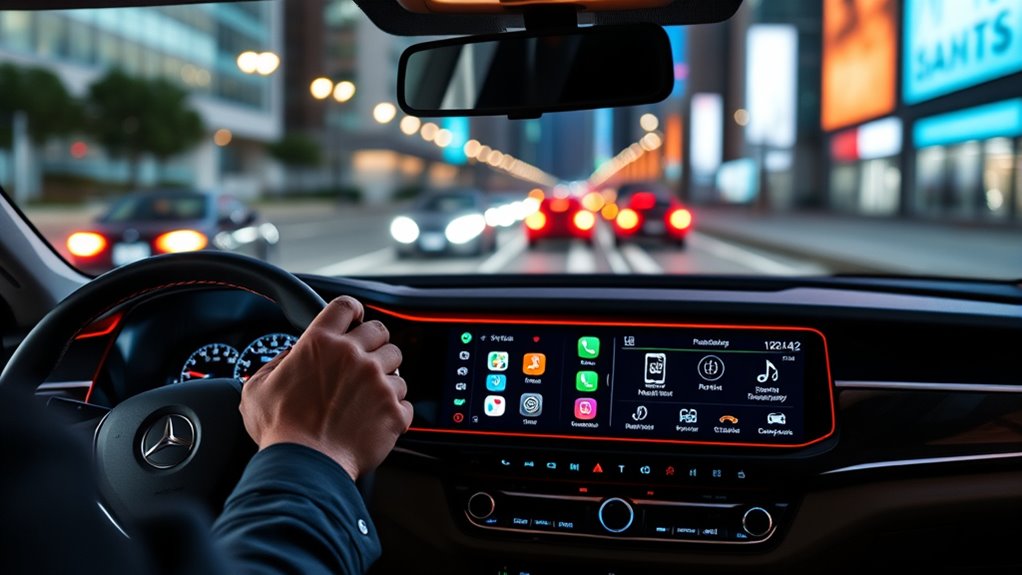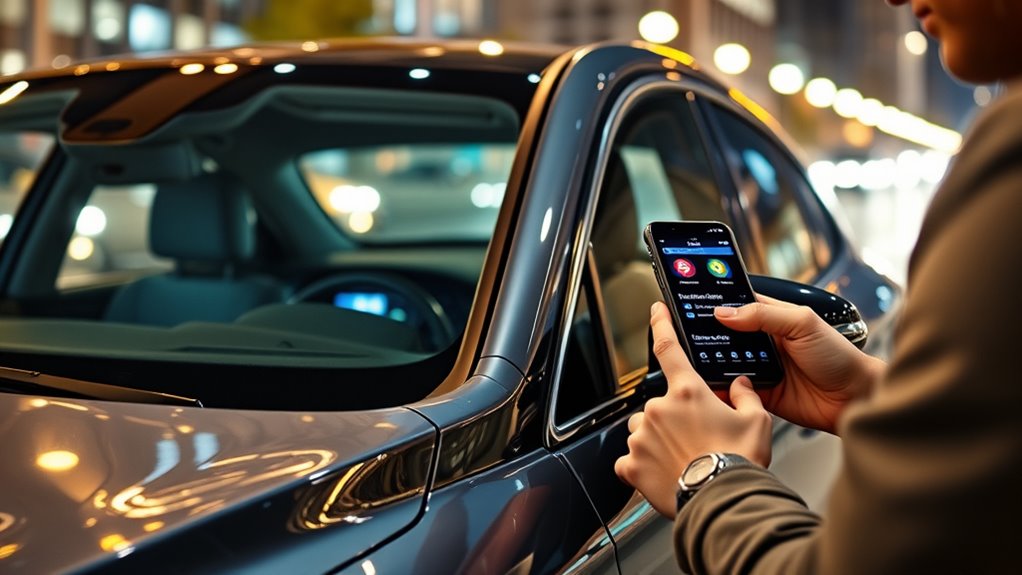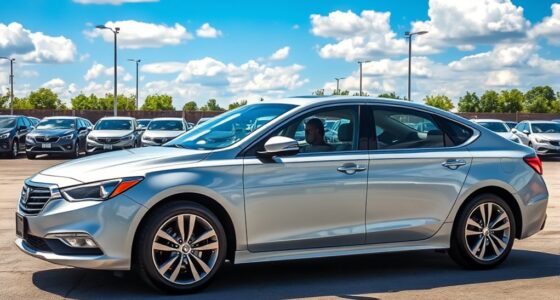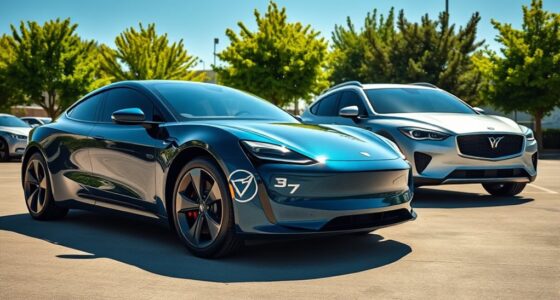Before signing a deal with an app-connected car, you should carefully evaluate its smart features. Make sure the app works reliably and offers a seamless user experience, including features like remote control and navigation updates. Pay close attention to privacy policies and understand what data is collected and how it’s protected. Ensuring strong security measures are in place is essential to protect your personal information. Keep exploring to discover how to make the most informed decision for your connected vehicle.
Key Takeaways
- Review privacy policies to understand data collection, usage, and sharing practices before enabling app features.
- Test app reliability and user interface during a demo or test drive to ensure seamless functionality.
- Assess security measures, such as updates and encryption, to protect personal information and prevent vulnerabilities.
- Consider customization options and remote monitoring features to enhance convenience without compromising privacy.
- Evaluate how app features impact your driving experience, safety, and overall convenience before signing any agreements.

App-connected cars are transforming the way you drive by seamlessly integrating your vehicle with your smartphone and digital devices. This integration offers a level of convenience and functionality that’s hard to ignore, from remote start to real-time navigation updates. However, as you explore these features, it’s vital to consider how they impact your privacy and overall user experience. While the idea of controlling your car through an app sounds appealing, it also raises important questions about data security and how your information is being collected, stored, and shared. Manufacturers often gather data on your location, driving habits, and even personal preferences, which can be used for targeted advertising or sold to third parties. Before signing any deal, you should scrutinize the privacy policies and understand what data the system collects and how it’s protected. Additionally, understanding the growing importance of data security can help you make informed decisions about adopting these technologies.
Your user experience is another critical aspect to evaluate. App-connected features promise increased convenience, but they can sometimes be more of a hassle than a help if not implemented properly. For example, frequent app crashes, confusing interfaces, or lagging responses can frustrate you, especially when you’re trying to access critical functions like navigation or emergency assistance. It’s wise to test the app during a demo or test drive, paying attention to how intuitive and reliable the interface feels. Look for features that genuinely add value to your driving experience, such as voice commands, easy app navigation, and seamless connectivity with your digital ecosystem. Keep in mind that a well-designed app can make your driving safer and more enjoyable, but a poorly functioning one can do the opposite.
Another factor to consider is the level of customization and control you have over the app-connected features. Some systems allow you to personalize settings, set preferences, or even remotely monitor your vehicle’s status. These capabilities can make your life easier, especially if you’re managing multiple devices or family members’ vehicles. However, they also mean you need to stay vigilant about security, ensuring your access isn’t easily compromised. The choice of a car with robust security features and regular software updates can enhance your confidence in using these smart features without risking your privacy.
Frequently Asked Questions
How Secure Are App-Connected Car Systems From Hacking?
You might wonder how secure app-connected car systems are from hacking. While these systems offer convenience, cybersecurity vulnerabilities can exist if the manufacturer doesn’t implement strong security protocols. To protect your privacy, look for privacy protection measures like data encryption and regular software updates. Stay cautious and choose brands that prioritize cybersecurity to minimize risks, ensuring your personal information stays safe from potential cyber threats.
What Is the Average Cost to Upgrade or Repair Smart Features?
You’re probably wondering about the cost comparison for upgrading or repairing smart features, which can feel like a never-ending expense. On average, repairs or upgrades can range from a few hundred to over a thousand dollars, depending on the feature and repair frequency. These costs can escalate quickly if you neglect regular maintenance or experience frequent issues, making it essential to budget wisely for your connected car’s ongoing smart technology needs.
Do All App-Connected Cars Support Remote Diagnostics?
Not all app-connected cars support remote diagnostics, as vehicle integration varies by model and manufacturer. Some offer advanced features that enable remote troubleshooting, but others may lack this capability. You should consider user privacy concerns, as remote diagnostics involve sharing vehicle data. Before signing, verify the car’s smart features align with your needs and that you’re comfortable with how your data is protected.
How Do App Updates Affect Vehicle Warranty Coverage?
When you get app updates for your connected car, it’s important to consider warranty implications. Some manufacturers specify in their software update policies that certain updates may void parts of your warranty if they cause issues. Always review your vehicle’s warranty coverage and the update policies before installing new software, so you understand how updates might impact your warranty and avoid unexpected costs down the line.
Are There Differences in App Compatibility Across Car Brands?
You’ll find that app compatibility varies across car brands due to differences in brand-specific features and app ecosystem integration. Some brands offer a seamless experience, while others may have limited compatibility or require additional updates. It is crucial to check each vehicle’s app ecosystem integration capabilities before signing, ensuring the smart features work smoothly with your preferred apps. This way, you maximize convenience and avoid surprises down the road.
Conclusion
As you navigate the road of app-connected cars, remember that these features are like keys to a future gate—offering convenience but also demanding careful inspection. Before you sign on the dotted line, make sure you’re not merely opening the door to innovation but also safeguarding what truly matters. In this digital landscape, your choices are the compass; choose wisely, for behind every app lies the promise of freedom or the trap of dependency.










